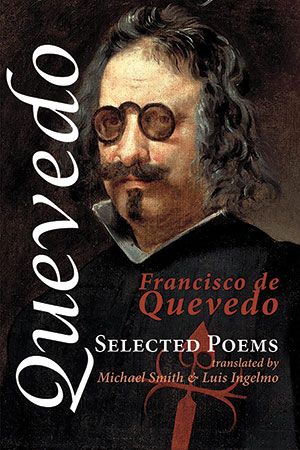Shearsman Store
Quevedo, Francisco de
Francisco Gómez de Quevedo y Santibáñez Villegas (1580–1645), was a nobleman, whose parents were both at the royal court, and one of the most important poets of the siglo de oro . Quevedo was lame, had deformed feet, and was also overweight and shortsighted, but took refuge in books as a student in the Jesuit school in Madrid. In 1596 he went on to study at the University of Alcalá de Henares, after which he studied theology in Valladolid.
He was already well-known as a poet by this time, and went on to establish a formidable reputation as both poet and novelist. He was a disputatious character, and engaged in many a public battle of words with his main poetic rival, Góngora, as well as with Alarcón and Pérez de Montalbán, all of whom were to feel the impact of Quevedo’s bile. It must be admitted however, that Góngora, at least, repaid him with equal (verbal) measure.
Quevedo was involved in a conspiracy in Venice in 1618, after which he was put under house arrest. In 1620, he was exiled, following the death of his patron, but he was pardoned when Philip IV came to the throne. Quevedo accompanied the young King on some of his journeys, but fell afoul of the Inquisition when some of his satiric verses were printed without permission. His private life seems to have been somewhat disordered, and Góngora accused him in a satire of being a drunk, referring to him as Francisco de Quebebó (i.e. Francis WhatamIdrinking).
He was to be constantly involved in controversies, both political and literary, and incurred the wrath of the Count-Duke of Olivares, the most powerful nobleman in Spain, through his criticism of the government. This led to his imprisonment in León for four years from 1639. He died two years after his release.
His oeuvre offers a bewildering range: theological works, literary and critical commentaries, satires, and novels. His poetry fills over a thousand pages in modern editions, and he is without doubt one of the great literary figures of his age.


